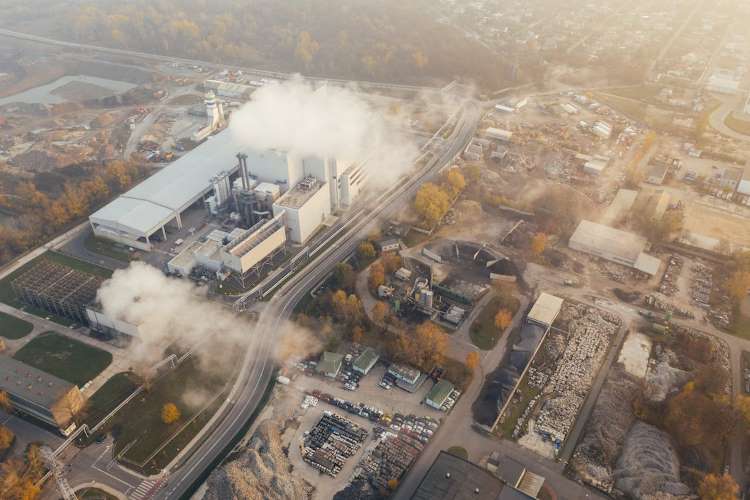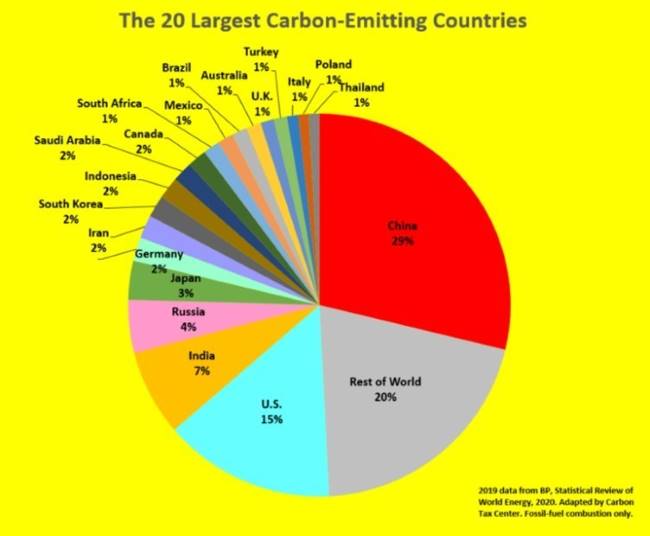
A COP28 advisory panel has proposed high carbon tax to tackle emissions from the maritime and aviation sectors. Its recommendations have brought the concept of carbon taxation into sharp focus. Any discussion on the subject will require a nuanced understanding of this economic instrument and its role in climate change mitigation.
Carbon tax is a levy imposed on the carbon content of fossil fuels. Its primary aim is to discourage the use of fossil fuels, thereby reducing the emission of carbon dioxide and other greenhouse gases. Economically, it is a way to internalise the external costs of climate change – that is, making polluters pay for the environmental damage they cause.
READ I India announces its arrival in the critical minerals market
Carbon taxes: Making emitters pay
The primary advantage of a carbon tax is its direct approach to reducing emissions. By making it more expensive to emit carbon, it provides a clear economic signal to both producers and consumers to reduce their carbon footprint. This can lead to a significant decrease in the use of fossil fuels and a corresponding increase in the use of renewable energy sources. The revenue generated from this tax can be substantial, providing governments with funds that can be invested in green technologies or used to mitigate the impact of the tax on lower-income households.

However, the effectiveness of a carbon tax goes beyond mere revenue generation. It also stimulates innovation in the private sector. Companies, in an effort to reduce their tax burden, are incentivised to invest in research and development of cleaner technologies. This can accelerate the transition to a low-carbon economy, driving progress in sectors ranging from energy to transportation.
Criticism and challenges
Despite its potential, the implementation of a carbon tax is fraught with challenges. A significant concern is the regressive nature of the tax. Lower-income households tend to spend a larger proportion of their income on energy, making them more vulnerable to increases in fuel costs. This necessitates the implementation of measures to offset the impact on these households, which can be complex and politically sensitive.
Additionally, the introduction of a carbon tax can face resistance from industries and consumers accustomed to cheap fossil fuels. The political will to enforce such a tax varies greatly across nations, and in some cases, is hindered by the influence of powerful fossil fuel lobbies. There is also the economic argument that sudden increases in energy costs can disrupt economic activity, leading to job losses and economic downturns in the short term.
Limited scope of carbon tax
Another limitation of the carbon tax is its focus. It primarily targets carbon dioxide emissions from the burning of fossil fuels and does not directly address other greenhouse gases or sources of emissions, such as methane from agriculture or deforestation. This narrow scope means that carbon taxes need to be part of a broader strategy that includes other regulatory and fiscal measures.
At COP28, the concept of carbon trading is also a subject of intense discussion. Carbon trading involves the buying and selling of emission allowances, enabling countries or companies to offset their emissions by investing in emission reduction projects elsewhere. This mechanism, if implemented effectively, can complement carbon taxes by providing a flexible and cost-effective way for entities to meet their emission reduction targets.
Equity concerns and targeted measures
The regressive nature of carbon taxes, disproportionately affecting lower-income households, necessitates the implementation of targeted measures to mitigate its impact. Well-designed social safety nets, such as subsidies for essential energy needs or tax rebates for low-income earners, can effectively shield vulnerable groups from the financial burden of carbon taxes.
Additionally, cash transfers, directly compensating low-income households for the increased energy costs, can provide immediate relief and protect their purchasing power. By carefully considering equity concerns and implementing appropriate measures, policymakers can ensure that carbon taxes do not exacerbate existing inequalities.
The global nature of climate change demands a coordinated international approach to carbon pricing. Establishing a global carbon market, where countries and companies can trade emission allowances, could foster greater efficiency and cost-effectiveness in emission reduction efforts. Linking existing regional carbon trading schemes, such as the European Union Emissions Trading System, could further expand the reach and impact of carbon pricing mechanisms. By collaborating on international carbon pricing initiatives, nations can collectively amplify the effectiveness of carbon taxes in combating climate change.
The utilisation of carbon tax revenues is crucial to ensuring public trust and maximising the impact of climate mitigation efforts. Governments should adopt transparent and accountable mechanisms for tracking and reporting carbon tax revenues. Establishing independent oversight bodies can provide an additional layer of scrutiny and ensure that these funds are used effectively for climate-related purposes.
Regular public reports, detailing the allocation and utilisation of carbon tax revenues, can foster transparency and strengthen public confidence in the management of these funds. By prioritising transparency and accountability, governments can demonstrate their commitment to using carbon tax revenues responsibly and effectively in the fight against climate change.
While the carbon tax is a powerful tool in the fight against climate change, it is not a panacea. Its success depends on careful design and implementation, considering economic, social, and political factors. Moreover, it needs to be part of a comprehensive strategy that includes a variety of regulatory and fiscal measures, as well as international cooperation in areas such as carbon trading. As the world’s attention turns to COP28, the discussions and decisions made here will be crucial in shaping the future of carbon taxation and broader climate policy.
